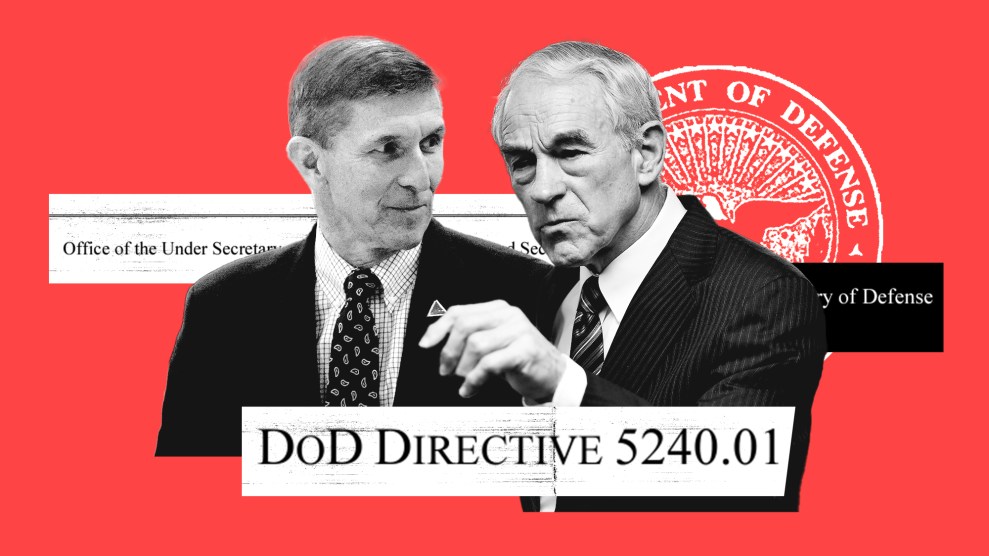Here’s a surveillance state factlet that I think I knew at one point, but have since forgotten:
Under the 1986 Electronic Communications Privacy Act, federal authorities need only a subpoena approved by a federal prosecutor — not a judge — to obtain electronic messages that are six months old or older. To get more recent communications, a warrant from a judge is required. This is a higher standard that requires proof of probable cause that a crime is being committed.
….The chairman of the Senate Judiciary Committee, Patrick Leahy, has proposed changing the law to require a warrant for all Internet communications regardless of their age. But law enforcement officials have resisted because they said it would undercut their ability to catch criminals.
As it happens, news reports suggest that the FBI did indeed get a warrant in order to trawl through the emails from Paula Broadwell and David Petraeus that are at the center of the current FBI/CIA scandal. But that shouldn’t change anything. The six-month rule simply has no reasonable basis. The FBI needs a warrant to look through my physical belongings regardless of how old they are, and that’s how it should be. Email shouldn’t be any different.
UPDATE: Julian Sanchez tweets some additional context: “Technically accurate but misleading: Subpoena for e-mail ALWAYS requires prior notice to user, opportunity to quash….For access without notice, judicial order always acquired—though not necessarily a probable-cause warrant.”
UPDATE 2: Never mind. Julian Sanchez tweets again to say prior notice isn’t required after all: “I was mistaken. The provision is confusingly framed, with “delayed notice” attatched to the “court order” subsection….But on a second look, 2705 allows delay for either orders or subpoenas. Embarrassing goof on my part; apologies….Though my understanding is that many providers will balk at turning over contents in response to a subpoena.”


















